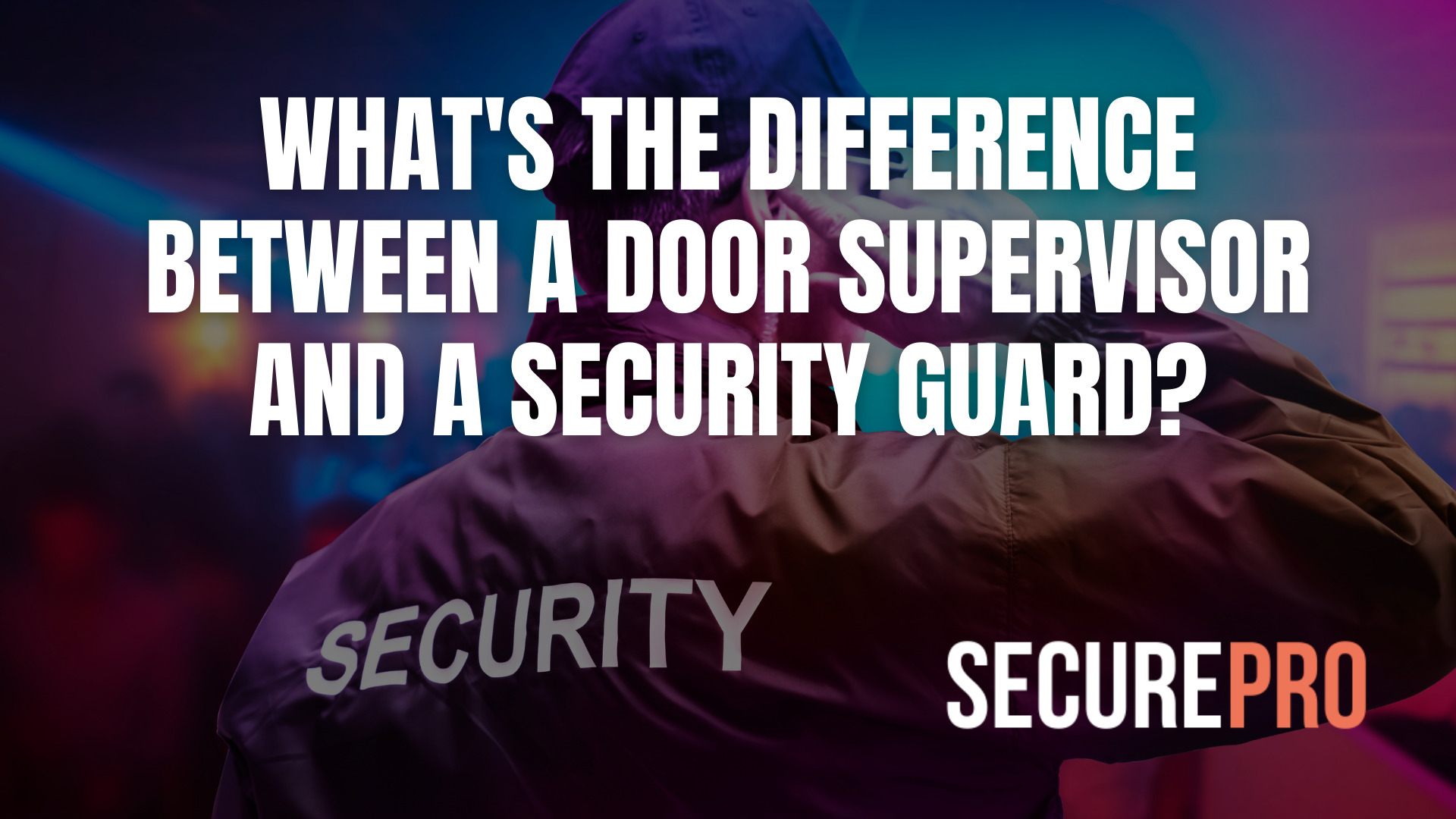
Within the security industry there are two roles that are often confused, door supervisors and security guards; although yes both are closely related in purpose, they differ in their levels of authority and responsibility. Both security guards and door supervisors serve different functions and are better suited to different situations which is why it’s important to know the difference when looking to employ the right type of security to fulfil your needs. So, what’s the difference between a door supervisor and a security guard?
The role of a door supervisor is to ensure the safety and security of customers and staff who are entering premises such as bars, clubs, pubs and entertainment venues. They have a responsibility to check ID’s, determine who can come into the venue and who can’t, maintain order, control crowds, assist in emergencies and liaise with management and police. They are often found at the door of the premises checking people are of legal age and aren’t carrying any harmful substances or objects and they work to protect the premises by screening those who want to enter. As a door supervisor you have the authority to refuse entry to anyone who is considered unsuitable to ensure that everyone can safely enjoy their night.
Security guards are able to work in a range of non-licensed establishments including retail and corporate environments; however are not licensed to work on any premises that permits alcohol consumption – for example bars and clubs. The work that a security guard carries out will vary depending on where they are working and who for however their overall responsibility is to ensure safety of customers, the general public, employees and the security of the property. Security guards are a living, breathing line of defence for businesses and its surroundings; they are able to guard premises, properties and individuals, maintain a physical presence, patrol and provide surveillance services.
The key difference between door supervisors and security guards is the type of responsibility; they both work to keep people safe and secure however in different ways and in different locations. A door supervisor works in a premises that is licensed to serve alcohol including bars, pubs and clubs; they have the responsibility to judge anyone entering based on their behaviour. A door supervisor is also a legal requirement on locations where alcohol is served which is often why you see them on the doors of nightclubs. Whereas a security guard is responsible for keeping non-licensed premises – such as buildings, construction and retail sites – secure from any unlawful behaviour. Security guards are an excellent form of security for securing any areas where no alcohol is served. A door supervisor is able to act as a security guard however a security guard cannot take the place of a door supervisor as they aren’t carrying the correct licence that enables them to carry out this role.
Although there are differences in the authorities and responsibilities of door supervisors and security guards, the one thing they have in common is that they work to keep the public safe and secure. These two roles are crucial within the security industry and an excellent choice of safety when needing to maintain order and safety at different premises.
The team here at SecurePro are proud to offer a comprehensive range of security solutions to keep your premises safe, ranging from manned security to dog-handling. Your safety is always our number one priority. To speak to one of our experts, contact us today on 01384 378300 for a confidential discussion about how we can help you.
177 Lower High Street
Stourbridge
West Midlands
DY8 1TG
© SecurePro is a trading subsidiary of Four Circles Group Ltd, a registered UK company (11335513).